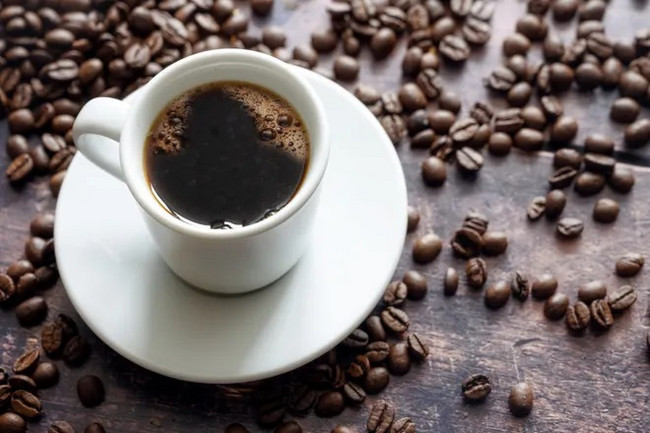✕

Column: industry Tag: coffee,drip coffee,step Published: 2022-07-14 13:31 Source: USA TODAY Author: Morgan Hines
Many of us remember the scene in "Elf" during which Buddy (Will Ferrell) believes he's stumbled upon the "World's Best Cup of Coffee" that Jovie (Zooey Deschanel) later clarifies is, in fact, a "crappy cup of coffee."
Most coffee drinkers have experienced that moment as well upon first sip of horrible coffee — whether it's a cup of joe we've purchased or one we've made at home (cough, cough, it's mine — the cup I've made at home that might not be excellent).
So, when brewing, what are the steps to take to ensure your drip coffee actually tastes good?
While the "rabbit hole of coffee geekery can get really deep" as Will Frith, a coffee generalist, buyer, roaster and the founder and product director of Building Coffee, told USA TODAY, there are tips that can help make that morning cup of joe a bit better.

Make sure your coffee is fresh
Frith says that well-roasted coffee (from a good roasting company) that is less than one month out from its roast date is best for an at-home drip coffee.
Dan McLaughlin, who owns Cleveland-based Golden Triangle Coffee, says that while fresh, specialty grounds may cost more, coffee drinkers often waste less because the coffee is better.
Grind coffee beans, rather than using pre-ground
Sahra Nguyen, founder of Brooklyn-based Nguyen Coffee Supply, a specialty Vietnamese coffee brand, says that while pre-ground coffee is great for convenience, you'll get a better flavor and aroma if you grind coffee beans right before brewing.
Buy a good coffee grinder
Frith recommends a "burr grinder" just before brewing. He recommends Baratza which starts under $170.
McLaughlin says that a good coffee grinder is an "obvious" tip to help make your coffee taste better. But it really does make a difference.
"Coffee is one of the few industries where you genuinely do get what you pay for," McLaughlin says. "So spending $150 on a burr grinder seems extreme until you realize it’s been 10 years and the grinder is still working perfectly."
Consider the size of your ground coffee beans
Ground size matters, too
"Most standardized guidelines recommend a medium grind size, which tastes great," Nguyen says.
But that's customizable — ranging from "coarse" to "fine" particle size — and is something to take into consideration.
"I tend to lean just a hair more fine for more kick to my cup," Nguyen says.
Use clean, filtered water for your coffee
Frith advises using clean, bottled or freshly filtered water for your coffee.
"Water quality is huge when it comes to coffee," McLaughlin says. "Your coffee is about 98.7% water on average with the remaining being total dissolved solids from the coffee grounds. In blind taste tests we’ve found even your most casual coffee drinkers notice a difference when improving the water quality used for brewing."
Check your brewing ratio
Frith says to make sure that your coffee "brewing ratio" is good by measuring the ingredients. He advises using a gram scale and starting with a 1:16 ratio for grams of coffee to grams of water.
Nguyen says that the "golden ratio" is two tablespoons of coffee for every six ounces of water.
That ratio can change to suit your taste.
Start 'blooming' your coffee
McLaughlin says people should "bloom" their coffee before starting the brewing process.
How to "bloom" your coffee: Run a little hot water from the machine onto the grounds, stop the machine and resume brewing 30 seconds later.
"Starting it again you open up the microscopic pores of the coffee and allow more water to flow freely within them," McLaughlin explains. "This increases your total dissolved solid rate and allows for a stronger cup of coffee. Think of it like taking a hot steamy shower before exfoliating. Same principle."
Ditch your metal coffee pot
Replace your metal coffee pot with a glass or ceramic carafe.
"While some people may be used to it, the metal taste in coffee is rarely enjoyable to many people," McLaughlin says. "Glass imparts no icky flavors into your coffee and ensures all you taste is coffee."
Clean your coffee pot
This probably should go without saying — but wash your coffee pot. McLaughlin says he's seen people choose to not clean their carafes.
"I see people often calling it 'seasoning' and I can assure you it’s not," McLaughlin says. "It’s rancid coffee oils that have baked into your brewer and are now giving off bitter/yucky flavors."
He suggests washing your coffee maker with white vinegar, but you also can try a product such as Urnex, which is meant to clean coffee machinery.
Previous:A can’t-miss technique for bringing flavor to pallid, seedless watermelons
Next:A U.S. judge rules that Subway can be sued over its '100% tuna' claim
Hot key words
Hot Products
Popular Vendors